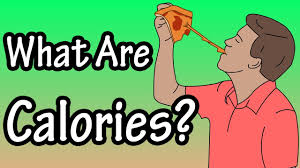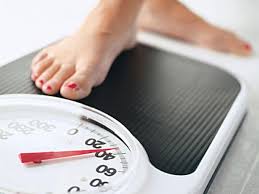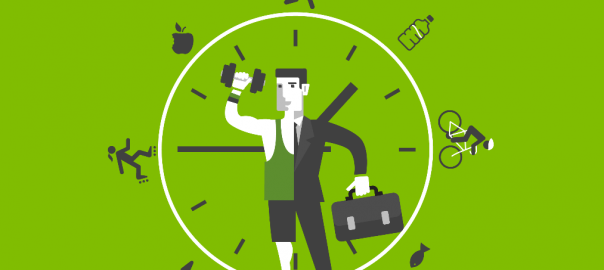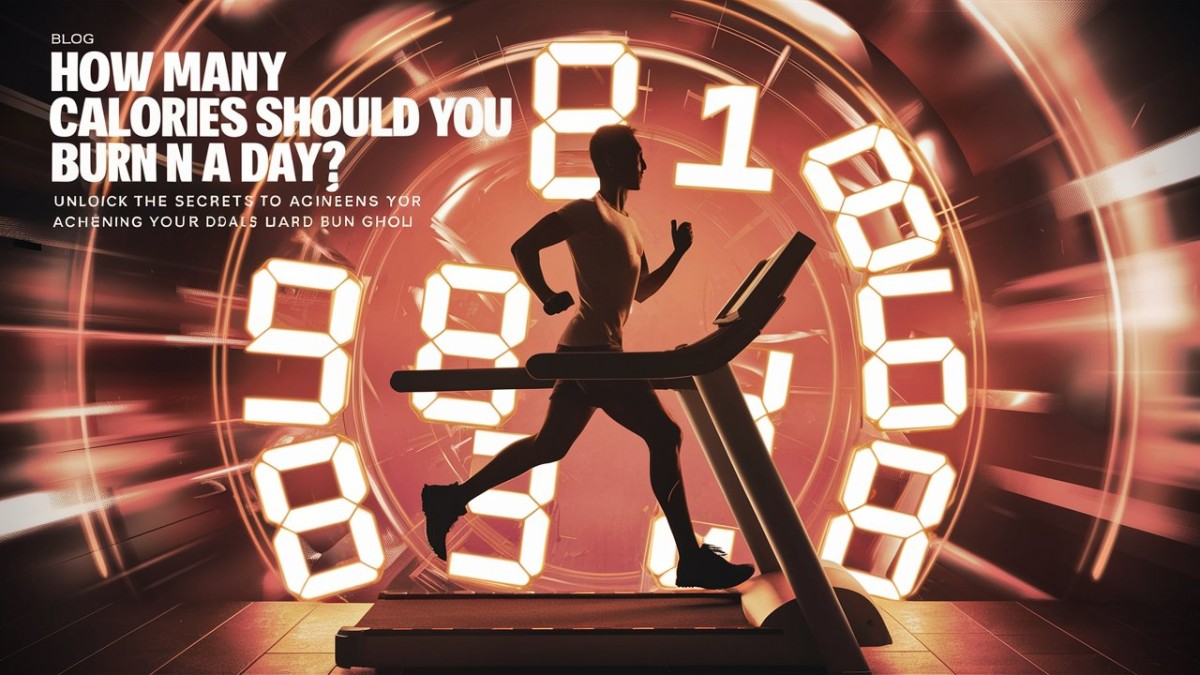How many calories should I burn in a day?
This question commonly arises several times in your mind.
There will be a lot of reasons for you to understand the calorie burn in a day.
Calorie intake and calorie burning are different, so understanding how many calories you should burn in a day is a crucial factor in managing your weight, and optimizing your fitness routine and your overall health too. Let's understand the right number of calories to be burned as advised by experts.
What Are Calories?
 Calories is the term used in most diet plans, dietitians, etc what you know about calories is that you plan to reduce your calorie intake or else you try to burn more calories but what exactly are calories, they are units of energy that your body needs to perform different sorts of activities from basic metabolic processes to physical activities. This energy we consume through foods or drinks is measured in calories and coming to burning calories it refers to using this energy to support all of the bodily functions and physical activities.
Calories is the term used in most diet plans, dietitians, etc what you know about calories is that you plan to reduce your calorie intake or else you try to burn more calories but what exactly are calories, they are units of energy that your body needs to perform different sorts of activities from basic metabolic processes to physical activities. This energy we consume through foods or drinks is measured in calories and coming to burning calories it refers to using this energy to support all of the bodily functions and physical activities.
Factors Influencing Calorie Burning
Several factors influence how many calories you burn in a day:
Basal Metabolic Rate (BMR):
The first thing that affects calorie burning is BMR which represents the number of calories your body needs to carry on with the basic physiological functions such as breathing, circulation, and cell production at rest. There are factors affecting BMR such as age, sex, weight, and muscle mass which means your BMR can vary as per these factors.
Physical Activity Level:
The next factor affecting your calorie burn is physical activity because the more active you are, the more calories you burn. Physical activities can be anything that ranges from daily chores and walking to well-planned exercise routines.
Thermic Effect of Food (TEF):
So to explain TEF it is the process of digestion, absorption, and metabolism of food that requires energy, it can be for about 10% of your daily calorie expenditure which is nothing but the TEF.
Non-Exercise Activity Thermogenesis (NEAT):
 Not all people burn calories through exercise this comes under NEAT which includes all the calories burned through non-exercise activities such as standing, and moving around throughout the day engaging in any physical activity.
Not all people burn calories through exercise this comes under NEAT which includes all the calories burned through non-exercise activities such as standing, and moving around throughout the day engaging in any physical activity.
Estimating Your Daily Calorie Burn
To estimate your daily calorie burn, you need to consider both your BMR and your physical activity level.
Calculating Basal Metabolic Rate (BMR)
There are several formulas to estimate your BMR, with the Harris-Benedict equation being one of the most commonly used:
For men: BMR=88.362+(13.397×weight in kg)+(4.799×height in cm)−(5.677×age in years)
For women: BMR=447.593+(9.247×weight in kg)+(3.098×height in cm)−(4.330×age in years)
Total Daily Energy Expenditure (TDEE)
To find your Total Daily Energy Expenditure (TDEE), multiply your BMR by an activity factor that corresponds to your lifestyle:
Sedentary (little or no exercise): BMR × 1.2
Lightly active (light exercise/sports 1-3 days/week): BMR × 1.375
Moderately active (moderate exercise/sports 3-5 days/week): BMR × 1.55
Very active (hard exercise/sports 6-7 days a week): BMR × 1.725
Extra active (very hard exercise/sports and a physical job): BMR × 1.9
How Many Calories Should You Burn?
This is the crucial point to decide on which you were searching all over so determining the exact number of calories to burn depends on your goals:
Weight Maintenance:
 So if you are someone wishing to maintain your current weight, your calorie intake should match your TDEE. For example, if your TDEE is 2,500 calories, consuming and burning 2,500 calories daily will help you maintain your weight without being overweight or underweight.
So if you are someone wishing to maintain your current weight, your calorie intake should match your TDEE. For example, if your TDEE is 2,500 calories, consuming and burning 2,500 calories daily will help you maintain your weight without being overweight or underweight.
Weight Loss:
This is the thing that the majority of people aim for to lose weight, you need to create a calorie deficit by burning more calories than you consume. A common approach without any complications is to aim for a deficit of 500 calories per day, which can lead to a safe and sustainable weight loss of about 1 pound (0.45 kg) per week.
Weight Gain:
Different then all some people aim to gain weight having their individual preferences so If your goal is to gain weight, you need to consume more calories than you burn. A surplus of 500 calories per day can help you gain approximately 1 pound (0.45 kg) per week.
Estimated Daily Calorie Burn by Age, Gender, and Activity Level
Age Group |
Gender |
Activity Level |
Estimated Daily Calorie Burn (Calories/Day) |
|
18-25 |
Male |
Sedentary |
2,400-2,600 |
|
Lightly active |
2,600-2,800 |
||
|
Moderately active |
2,800-3,000 |
||
|
Very active |
3,000-3,200 |
||
|
Extra active |
3,200-3,400 |
||
|
Female |
Sedentary |
1,800-2,000 |
|
|
Lightly active |
2,000-2,200 |
||
|
Moderately active |
2,200-2,400 |
||
|
Very active |
2,400-2,600 |
||
|
Extra active |
2,600-2,800 |
||
|
26-35 |
Male |
Sedentary |
2,200-2,400 |
|
Lightly active |
2,400-2,600 |
||
|
Moderately active |
2,600-2,800 |
||
|
Very active |
2,800-3,000 |
||
|
Extra active |
3,000-3,200 |
||
|
Female |
Sedentary |
1,800-2,000 |
|
|
Lightly active |
2,000-2,200 |
||
|
Moderately active |
2,200-2,400 |
||
|
Very active |
2,400-2,600 |
||
|
Extra active |
2,600-2,800 |
||
|
36-45 |
Male |
Sedentary |
2,200-2,400 |
|
Lightly active |
2,400-2,600 |
||
|
Moderately active |
2,600-2,800 |
||
|
Very active |
2,800-3,000 |
||
|
Extra active |
3,000-3,200 |
||
|
Female |
Sedentary |
1,800-2,000 |
|
|
Lightly active |
2,000-2,200 |
||
|
Moderately active |
2,200-2,400 |
||
|
Very active |
2,400-2,600 |
||
|
Extra active |
2,600-2,800 |
||
|
46-55 |
Male |
Sedentary |
2,000-2,200 |
|
Lightly active |
2,200-2,400 |
||
|
Moderately active |
2,400-2,600 |
||
|
Very active |
2,600-2,800 |
||
|
Extra active |
2,800-3,000 |
||
|
Female |
Sedentary |
1,600-1,800 |
|
|
Lightly active |
1,800-2,000 |
||
|
Moderately active |
2,000-2,200 |
||
|
Very active |
2,200-2,400 |
||
|
Extra active |
2,400-2,600 |
||
|
56+ |
Male |
Sedentary |
2,000-2,200 |
|
Lightly active |
2,200-2,400 |
||
|
Moderately active |
2,400-2,600 |
||
|
Very active |
2,600-2,800 |
||
|
Extra active |
2,800-3,000 |
||
|
Female |
Sedentary |
1,600-1,800 |
|
|
Lightly active |
1,800-2,000 |
||
|
Moderately active |
2,000-2,200 |
||
|
Very active |
2,200-2,400 |
||
|
Extra active |
2,400-2,600 |
Strategies to Increase Calorie Burn
After getting a clear idea of the number of calories to burn each day that will help you to plan and optimize your routine to ease your calorie burn you can incorporate these things into your routine:
Incorporate Cardio Exercises:
It is reported that people who engage in activities such as running, cycling, and swimming increase their heart rate and burn a higher number of calories compared to people who do not engage in any exercise.
Strength Training:
The next thing you can do to increase calorie burning is build muscle through resistance training because that can boost your metabolism, as muscle tissue burns more calories at rest compared to fat tissue. This can work as an additional tip for you to burn more calories.
Stay Active Throughout the Day:
 You can never burn a high number of calories just by sitting or sleeping in a bed so try to engage yourself in NEAT activities like walking, standing, and taking the stairs to increase your overall calorie expenditure.
You can never burn a high number of calories just by sitting or sleeping in a bed so try to engage yourself in NEAT activities like walking, standing, and taking the stairs to increase your overall calorie expenditure.
High-Intensity Interval Training (HIIT):
This can work well for all the fitness enthusiasts over there you can include HIIT as a part of your weight loss exercises because HIIT workouts involve short bursts of intense activity followed by rest or low-intensity exercise, leading to higher calorie burn both during and after the workout.
Monitor Your Diet:
Along with those physical activities consuming a balanced diet that aligns with your fitness goals can support your efforts to burn the right amount of calories.
Conclusion
Having a basic idea of how many calories you should burn will help you meet all types of fitness goals that you wish for whether you aim to maintain, lose, or gain weight, a well-balanced approach based on these factors will help you reach your goals healthily and sustainably. If you want more personalized advice, consider consulting with a healthcare provider or a fitness professional who can provide guidance based on your individual needs and circumstances to best help you achieve all of your fitness goals.
